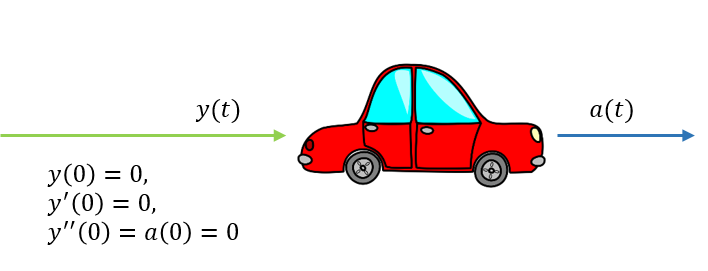Engineering
AI+Building Energy Modeling: IBPSA SimBuild 2024 Notes
Notes from attending the SimBuild conference, especially sessions on data science and modeling.The physics of multicopter drones [In Progress]
[In Progress] Equations governing flight of a UAVModern control: Solutions & state transition matrices
The state equation for a linear time-invariant system:
$$ x’(t) = A x(t) + B u(t) $$
Can be solved for $x(t)$. We collect all terms in $x$:
$$ x’(t) - A x(t) = B u(t) $$
Multiply equation by $e^{-At}$
$$ x’(t) e^{-At} - A x(t) e^{-At} = B u(t) e^{-At} $$
Using product rule $d(f;g) = f;dg + g;df$, where:
To give:
Modern control: State space equations
In modern control approaches, systems are analyzed in time domain as a set of differential equations. Higher order differential equations are decomposed into sets of first order equations of state variables that represent the system internally. This produces three sets of variables:
- Input variables are stimuli given to the system. Denoted by $u$.
- Output variables are the result of the current system state and inputs. Denoted by $y$.
- State variables represent the internal state of a system which may be obscured in the output variables. Denoted by $x$.
State-space equations
A state-space model is represented by two sets of equations.
Classical control: Transfer functions
A transfer function relates the output of a system to its input when it is represented in the Laplace domain. An assumption is made that initial steady-state response is 0. If $Y(s)$ is the output of a system, $X(s)$ is the input, then the transfer function is:
$$ H(s) = \frac{Y(s)}{X(s)} $$
Example - A Car

A car as a system: The input is the acceleration. The output is the total distance travelled. Initial conditions are zero.
Classical control: Transforms
Classical control methods simplify handling of a complex system by representing it in a different domain. The equations governing system dynamics are transformed into a different set of variables. A for a function $f(t)$ in the $t$ domain, an oft used transformation is of the form:
$$ \mathcal{T}(f(t)) = F(s) = \int_{Domain} f(t) \cdot g(s, t); dt $$
Mathematically, the integral removes the $t$ variable and only leaves $s$, thus converting from the $t$ domain to the $s$ domain.
Control Systems: Overview
A primer for classical control theory.A Poor Man's Introduction to Reinforcement Learning
Categories: Engineering,
Tags: Artificial Intelligence, Reinforcement Learning,
Reinforcement Learning (RL) is one of the many ways to implement artificial intelligence (AI). AI is the design of “intelligent” agents that maximize their chances of success at some goal. The goal can belong to any problem: from winning a game of tic-tac-toe, to recognizing speech, to steering a car.
A problem can be approached in many different ways. An agent can search for all possible options and choose the best. Or the problem can be formulated as a set of logical rules which the agent then applies at each step. The former way may require searching too many options. The latter may require meticulous representation of the nuances in a system.
A case study in choosing algorithms
This past year, I have been crunching data from dark matter simulations. Data size can get pretty large when it comes to scientific computing. As I write this post, I have a script running on 3.8 TB (that’s right – 3,700 gigabytes) of cosmic particles. At these levels one starts thinking about parallelizing computations. And therein lay my dilemma and a soon to be learned lesson.
Talking With Satellites
This year I am leading a senior design team in developing a software defined radio that can talk with a satellite that Vanderbilt just launched. Compared to a normal radio, an SDR has most of the signal processing functions implemented virtually. This means that it can change its operation on the fly. An interesting application of SDRs is cognitive radio: that is, radios communicating with other radios in their vicinity and adjusting their frequencies to maximize their use of the bandwidth.